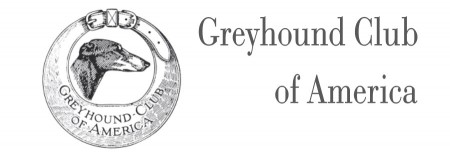Legislative Alerts
Updated 12/9/2022December 9, 2022
Dear Club Legislative Liaisons, Officers and Delegates and concerned dog owners, please take action on this alert, and forward it to your club members asking them to take action too. Scroll down for information and resources on how to take action.
Anti-breeder and animal rights groups are making a year-end push on Capitol Hill to advance arbitrary and harmful federal breeder regulations (H.R. 2840 /S. 1385) called the “Puppy Protection Act”.
This bill would mandate arbitrary new requirements for certain hobby and professional dog breeders, and continues to gain support Congress. We urge all responsible dog owners, breeders and enthusiasts to contact their members of Congress and the U.S. to ask them to oppose the bills.
The “Puppy Protection Act” was introduced in 2021 and has carried over to this year. As such it continues to gain support from lawmakers who do not understand the problematic consequence of the measure. While certain aspects of this feel-good measure codify general good practices, other parts establish arbitrary, one-size-fits all mandates that are not in the best interests of all dogs and undermine individual flexibility that allows for best practices and optimal outcomes.
More than 200 lawmakers have signed on as co-sponsors, increasing the likelihood that the measures could advance rapidly as part of a must pass omnibus measure at the end of the year, unless lawmakers hear your opposition.
We urge all responsible dog owners, breeders and enthusiasts to take a moment to contact your members of Congress to ask them not to support this “feel-good” measure and the one-size fits all mandates that can harm responsible hobby breeders and specialized breeding practices. Ask them instead to support additional resources for the USDA so they can protect animals better by enforcing existing animal welfare requirements.
How This Impacts You:
These measures would apply to anyone who is subject to USDA breeder/dealer licensing. Breeders are subject to USDA licensing if they maintain more than 4 “breeding females” (a term that is undefined but is generally considered to mean an intact female) and sell or transfer even one of the offspring “sight unseen”. “Breeding females” include any combination of cats, dogs, or other small pet mammals such as hamsters, guinea pigs, etc. (Learn more).
Scroll down to learn more about these bills and how to contact your members of Congress.
Arbitrary requirements include but are not limited to:
- Mandated indoor space sufficient to allow the tallest dog in an enclosure to stand on his or her hind legs without touching the roof of the enclosure.
- Mandated unfettered access from dogs’ primary enclosures to an outdoor exercise area large enough that it “allows dogs to extend to full stride”. This creates a potentially dangerous environment for dogs. For hobby breeders who keep dogs as pets in their residences, the dog’s primary enclosure could be considered their crate.
- Mandated annual dental exams.
- Completely solid flooring, despite scientific recognition that multiple types of high-quality flooring, including engineered slatted flooring, is beneficial in certain types of kennels and with certain breeds.
- Mandated pre-breeding screenings. No specific details are provided for what the screening would involve or who would make such decisions.
- Prohibition on the keeping of dogs in enclosures above 85 degrees or below 45 degrees F, regardless of breed or acclimation needs for dogs that hunt, sled, detect explosives, or do other work and thrive in cooler temperatures, or must be acclimated to cooler or warmer temperatures for their safety.
Further, it prohibits the breeding of a female dog:
- Unless pre-screened by a veterinarian
- If it would produce more than two litters in an 18-month period.
- Based arbitrarily on the age and size of the dog.
While some portions of the measures include reasonable generalized guidelines for canine care, arbitrary requirements that ignore best practices for individual outcomes are not appropriate for federal mandates. Arbitrary, one-size-fits-all requirements do not take into account the broad range of breeds and types of dogs or best health and breeding practices. They also do not allow for creative approaches that allow expert breeders and owners to provide optimal care for their individual dogs and advance the art and science of responsible dog breeding.
To learn more, see and share Breeder Expertise, Thoughtful Analysis Demonstrate Dangerous Flaws in ‘Feel Good’ Dog Law.
What you Can Do:
Most members of Congress want to do the right thing for dogs, but they are not experts in this area. It’s likely they do not understand the nuances or consequences of arbitrary legislation that may “sound good” to a non-expert. They also hear a lot from animal rights/ animal protection groups, and they also rely on hearing from constituents. Unless we help educate our lawmakers, we will be subject to bad laws.
Your member of Congress needs to hear from you today. Please contact your member of Congress and your U.S. Senators today. Visit AKC’s Legislative Action Center and type your address in the “Find Your Elected Officials” box to find out who represents you and get their contact information.
Talking points:
- H.R. 2840/S.1385 mandate arbitrary one-size-fits-all requirements for temperatures, kennel engineering standards, and breeding bans that are not appropriate for all types or breeds of dogs and could harm some dogs.
- Explain you are a constituent. Respectfully share your experience and concerns as a dog owner/breeder/expert and based on the talking points above. Breeders: Relying on your experience, explain in practical terms how the new mandates would adversely impact your breeding program.
- Ask them to not support advancing the bills out of committee.
- If you can, let the AKC GR team (doglaw@akc.org) know you contacted your lawmakers and if you received any response.
For questions or more information, contact doglaw@akc.org, visit www.akcgr.org or contact 919-816-3720.
Thank you for your action to protect the future of our breeds and the integrity of responsible, expert breeders.
